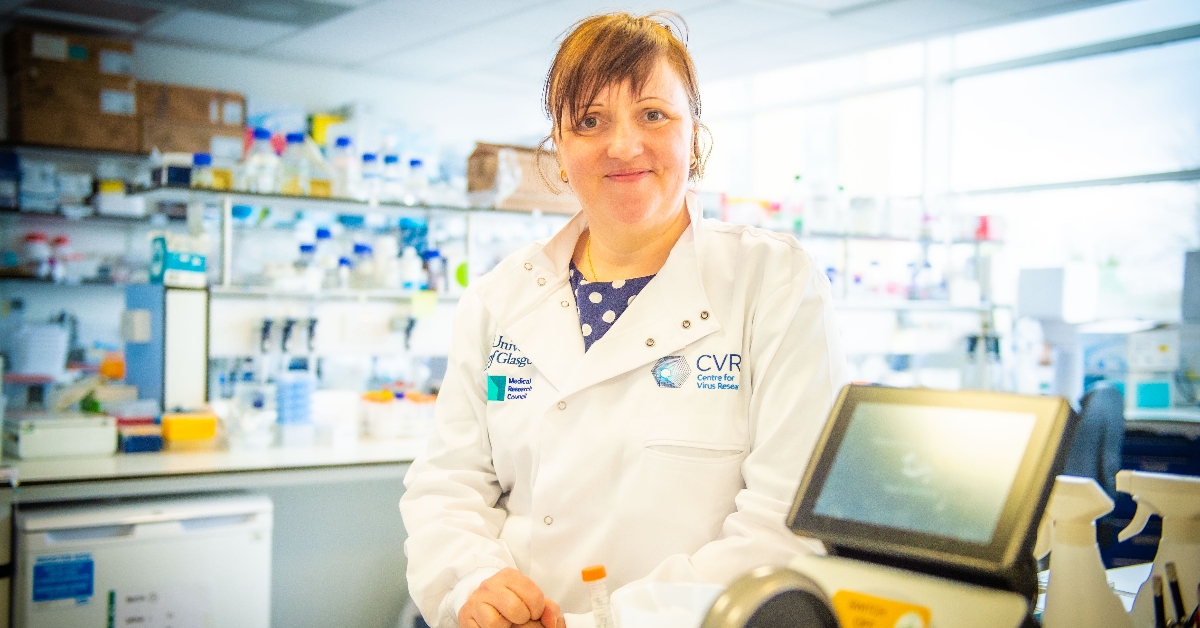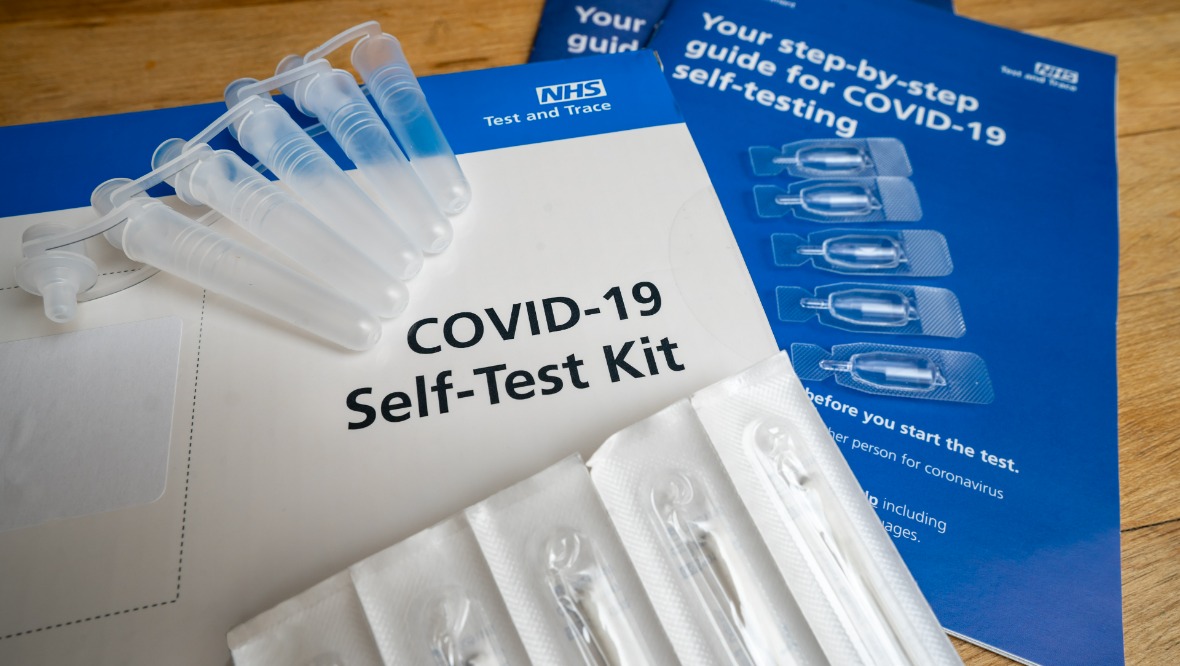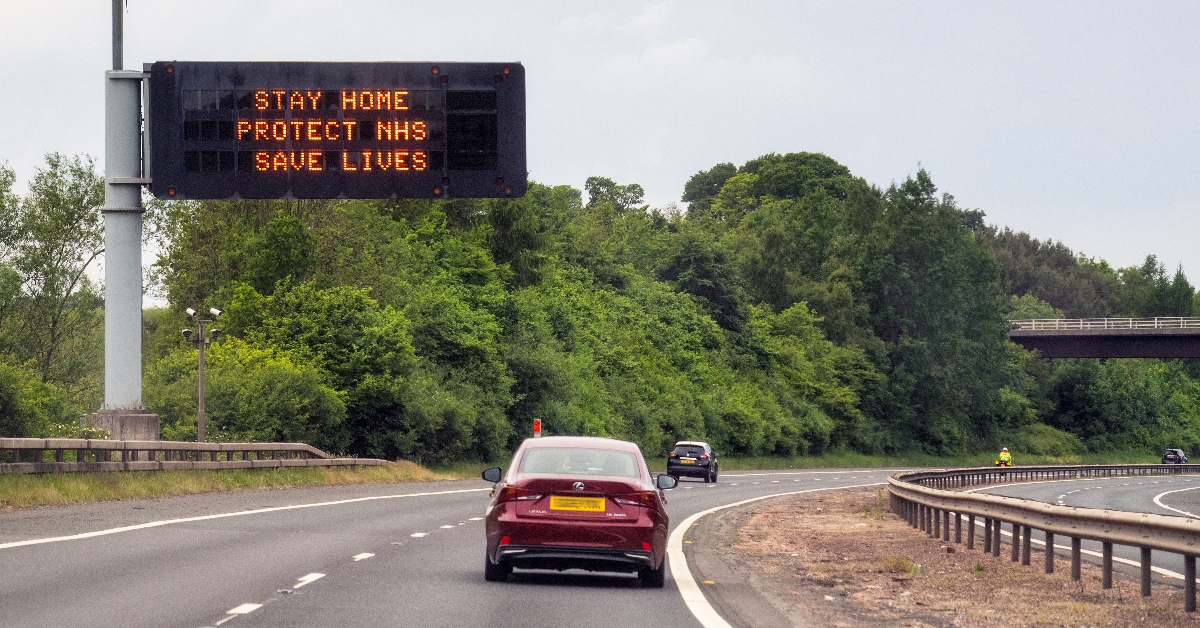On the second anniversary of the first full lockdown, Covid is still infecting Scots in record numbers.
When people across the country were told to “stay at home” on March 23, 2020, the Prime Minister said the UK could “turn the tide of coronavirus in 12 weeks”.
But more than 100 weeks later, the virus remains at large, hospitals are under immense pressure and masks are still required by law.
So, are we anywhere near declaring the pandemic over?
What do the experts say?
 STV News
STV News“The pandemic is not over,” says Professor Massimo Palmarini, director of the Centre For Virus Research in Glasgow – one of the key units across the country that dropped everything else to focus on Covid-19.
“It’s difficult to imagine it’s been two years. Very rapidly we’ve been able to isolate the virus, understand its function and develop vaccines, develop antiviral drugs and trying to have effective strategies to control its spread. It’s been truly amazing.”
Despite the creation of various vaccines and treatments against SARS‑CoV‑2, mutations of the virus means the work to identify waves of infection before they happen remains vital.
 STV News
STV News“Covid is still, unfortunately, pressing,” says Emma Thomson, professor of infectious diseases and consultant at NHS Greater Glasgow and Clyde.
“We sequenced the first Scottish SARS-CoV-2 genome on March 1, 2020, and since then we really haven’t stopped pushing.
“I think the biggest concern we have, and this is an ongoing threat, is that as immunity wanes in the population, we may become more vulnerable again to the virus and we may see new variants which are even more immune evading than Omicron.”
Omicron, confirmed as the dominant strain of Covid-19 in Scotland in December 2021, has proved to be the most effective mutation against vaccines to date, says Prof Thomson.
But she adds that each emerging variant has been better at evading immunity than the last.
What are the statistics?
 iStock
iStockMore people than ever are believed to have had the virus in Scotland in March, according to the Office for National Statistics.
It said upwards of 376,000 were likely to have had Covid in the second week of the month, the equivalent to one in 14.
Meanwhile, the number of people in hospital with coronavirus in Scotland has reached its highest total ever for the second day in a row.
Scottish Government figures released on Tuesday showed there are 2221 patients currently in hospital with the virus.
That is an increase of 93 people from the total of 2128 reported on Monday, which surpassed the previous highest total for Covid hospital admissions on January 22, 2021, when 2053 people were receiving treatment.
What restrictions remain?
 iStock
iStockCoronavirus measures eased further in Scotland on Monday – despite infection levels at record highs.
Customer details no longer need to be collected by hospitality venues, such as bars and restaurants, for contact tracing purposes.
Further changes to Test and Protect will come into effect next month, but the legal requirement to wear face coverings remains in place for at least another two weeks.
Living Safely with Covid, the Scottish Government document outlining the return to normality, sets out the strategy for how legal restrictions will be phased out and the virus will be managed by public health advice, vaccination and treatment.
Marking its publication, the First Minister said she hoped the relaxation of the rules would be “sustainable”.
Follow STV News on WhatsApp
Scan the QR code on your mobile device for all the latest news from around the country




























